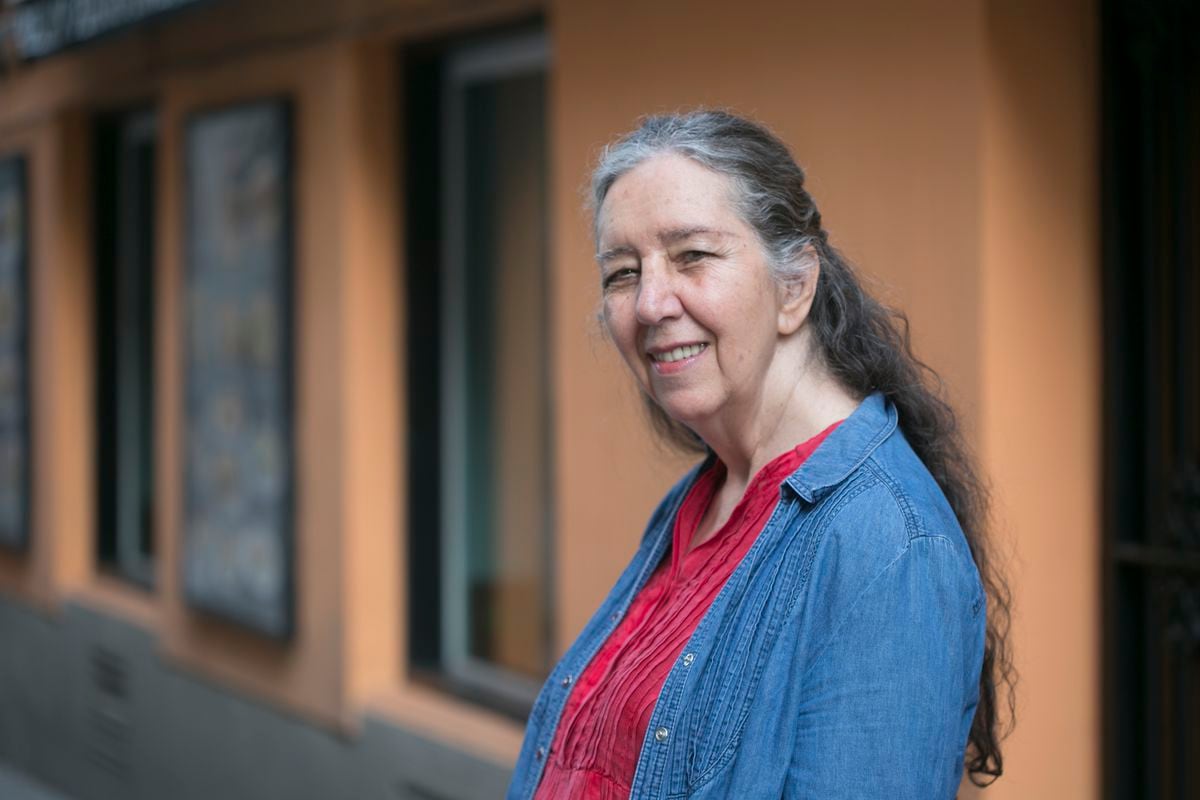By María Verza and Ginnette Riquelme - The Associated Press
When Elisa Xolalpa managed to have three daughters and a job that she enjoys, and with which she supports her family, she achieved one of her victories:
to
defeat
the desire of who two decades ago attacked her with acid
with the intention of burying her alive.
But one of his aspirations is still pending: that justice be done.
In a country like Mexico, with high levels of violence in general and against women in particular and where feminists have been criticized by the authorities for taking to the streets to demand an end to impunity, a group of survivors of acid attacks has begun to raise his voice.
"I thought I was the only one," Xolalpa explains,
"but we are no longer alone
.
"
["They raped me, they beat me and I felt like I was disappearing": in Mexico women suffer human rights abuses when they go out to protest]
The Carmen Sánchez Foundation, which has been formally operating since the beginning of the year under the name of its director,
has registered 29 attacks, five of them in 2021.
The number may seem anecdotal in a country with 126 million inhabitants but they fear that it is only the tip of the iceberg.
That is why they demand legal changes so that the attacks are considered as feminicide attempts throughout the country.
They aspire that putting a spring in an undone throat or going through the operating room so that one eye can be opened are considered staple surgeries.
They claim to be seen, even though seeing their faces is painful.
[A man arrested in Mexico for the murder and brutal torture of a young Texan across the border. "I want him to pay," says his mother]
“Mom, what is acid?” 9-year-old Daniela asked her mother one day.
Elisa Xolalpa remembers that for a moment she was speechless.
Then he answered that it was a liquid that he uses in the greenhouse and that it is dangerous.
Another day the little girl came out of school crying inconsolably, "Some children told me you were very ugly, Mom, and it's not true," she remembers telling her.
Xolalpa is 38 years old and has a sweet look.
He enjoys growing flowers as his ancestors did, in earth rafts - the chinampas - on the lake area in the south of Mexico City, the Xochimilco neighborhood.
She knows that one of her earrings is to explain to her three young daughters, the fruit of her second partner, the attack that changed her life and after which she only wanted to die.
Now, however, she is focused on preparing psychologically for the hearing scheduled for August 18 in which she expects a judge to prosecute her attacker, detained only in February, 20 years after the attack and after three complaints and numerous threats.
At the moment, he is only accused of family violence, but she trusts that he will be sentenced to several years in prison and that later formal charges for attempted femicide may prosper.
Xolalpa has felt scorned even by her attacker's lawyer.
"He says I'm fine because I was able to start a family," she says indignantly.
She acknowledges that she became involved in her second relationship with the father of her daughters to "feel that someone could like her despite the scars."
"It was a mistake, I am still damaged."
Esmeralda Millán, 26, during the interview this June 22 in Puebla, Mexico.
Burning someone with acid implies wanting to dissolve a person physically and psychologically, causing permanent damage.
And it is premeditated, says the United Nations.
Xolalpa was tied to a post before the chemical was thrown at her.
The acid undid the ropes but also her clothes and her body as she ran half naked for help.
He was 18 years old and had a son of his attacker.
He has 40 surgeries on his body.
The only international organization that deals with the issue, Acid Survivors Trust International (ASTI), talks about the existence of some 1,500 attacks a year around the world but warns that the real number may be higher because many "are not reported and although they are reported, they can be reported. be classified under other types of crimes, "says Jaf Shah, its director.
Among the victims there are men and children but 80% are women generally attacked by partners or ex-partners or by people paid by them.
The goal: revenge or jealousy, says ONUMu Mujeres.
"They consider us their property and act under the scheme of 'if you're not going to be mine, you're not going to be anyone's," explains Sayuri Herrera, a prosecutor specializing in femicides in Mexico City.
And although this violence was associated with Southeast Asian countries, Shah assures that they cannot be linked to any region, culture or religion, although they can be linked to "profound economic and social gender inequalities."
Among the survivors there is everything: an Italian miss, a Ugandan student, a Mexican saxophonist, professionals from Colombia, peasant women from Nepal, young people from Bangladesh or British workers.
According to ASTI, the City of London broke records in 2017 with 456 attacks.
The NGO only has records from one Latin American country, Colombia, where there were 100 attacks a year.
In Mexico the numbers are increasing, acknowledges the prosecutor Sayuri Herrera.
There are no clear official statistics but cases, both current and past, do not stop appearing.
Ximena Canseco, historian and co-founder of the Carmen Sánchez Foundation, recalls how in just one day, on July 29, a survivor from 30 years ago contacted them and they found a message of help on Facebook from the mother of a young woman who had just been of throwing acid from a motorcycle.
As if that were not enough, that same Thursday they learned of the death by COVID of a colleague who had only dared to speak about her case weeks before.
"He never made it public, he had lost everything and he kept receiving threats, we talked for an hour," recalls Canseco.
He died at the age of 30 and without justice.
In June, a group of women, including Xolalpa, stood in front of the offices of the capital's prosecutor's office to put pressure on their processes.
Now this department reviews investigations originally initiated for serious injuries in case they should be re-classified as attempted femicide.
The future of women attacked with acid in Mexico changed in a medical consultation in Colombia, back in 2017.
Gina Potes, now 45 years old, and the first known survivor of a chemical agent attack in Latin America, received a video call on the way from the doctor.
It was Carmen Sánchez.
The Mexican told her how three years before, when she was having breakfast with her mother and sisters, her ex-partner entered the house and threw the corrosive liquid on her.
Then he fled in an accomplice's vehicle while she felt her chin stick to her neck and the cell phone melt in her hands.
"She told me about all her pains, she cried, she told me about her surgeries," explains Potes that since she founded the Reconstructing Faces collective in Colombia, she has dedicated herself to helping other women who have gone through the same thing as her.
The conversation continued when the Colombian got to the doctor, so he warned her: "Look, I'm going to get down but we keep talking, don't worry."
Thus it was that this woman with wild hair, long legs and beautiful eyes, as she describes herself and who after the attack suffered in 1996 thought she had become a monster, undressed before the camera of her cell phone and the perplexed look of the Mexican.
Seeing her show her scars shamelessly shook Sánchez.
He understood that hiding what had happened did not help.
And while she was seeking justice in her case and undergoing operation after operation - she's wearing 61 - she began talking with other women, looking for donors and help from lawyers, psychologists and doctors.
"From the beginning I only had two options: either he would let me die, which I did think many times, or he would look at my scars, those on the inside and those on the outside, and I understood that this was my new reality," Sánchez explained at the end of July. upon receiving an award from the Chamber of Deputies of Mexico.
There she made it clear to legislators that women like her face not only the violence of the aggressor but also "the indifference and impunity of the State, the re-victimization of the media and social and labor exclusion and discrimination."
The United Nations has highlighted the importance of modifying the laws so that they reflect the seriousness of the crime and help the reintegration of the victims, as has happened in Cambodia, the United Kingdom or Colombia.
In Mexico, only three of the 32 states recognize these attacks as attempts at femicide, a country where gender violence does not stop.
In the first half of 2021, they murdered 1,879 women and injured more than 33,000, according to federal government data.
In addition, almost 10,500 rapes and more than 23,900 cases of family violence were reported, two crimes that broke records in March and May respectively.
And it is from these previous acts of violence that the next acid attack can emerge, Sánchez alerts, because in their case and in that of the majority, the attacks occur when they decide to separate from the aggressor.
"The chemical agent is the straw that spills the glass, you have to sit down and look at all the drops of previous violence, family and social," agrees the Colombian activist.
For Xolalpa, one of the main lessons throughout these years is "violence cannot be normalized" and that is what she wants to transmit to her children. Many fears persist but their determination is clear. "I have to transform this pain into something else," he says. For now, it is time to demand justice and not be silent.


/cloudfront-eu-central-1.images.arcpublishing.com/prisa/L6TCOQ5HGZCWTOW6YNBMMGDKBA.jpg)









/cloudfront-eu-central-1.images.arcpublishing.com/prisa/KMEYMJKESBAZBE4MRBAM4TGHIQ.jpg)


